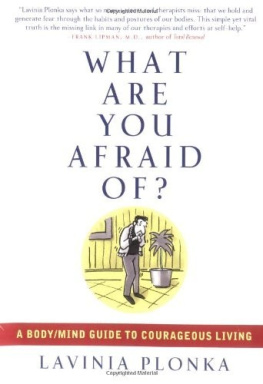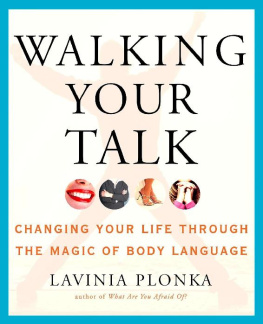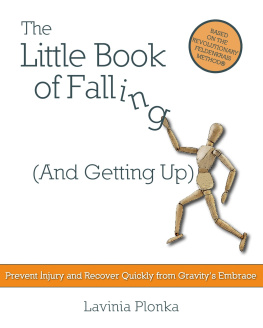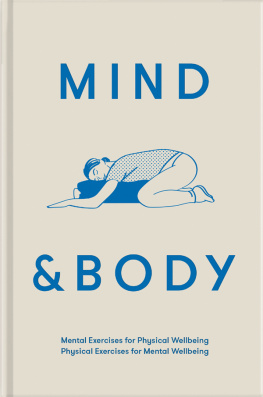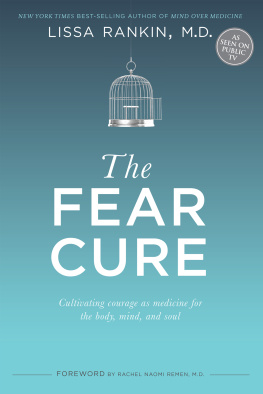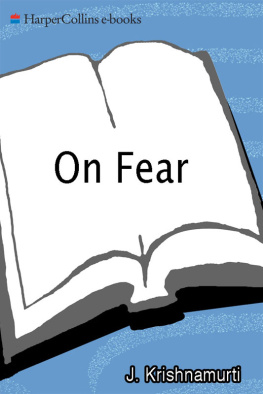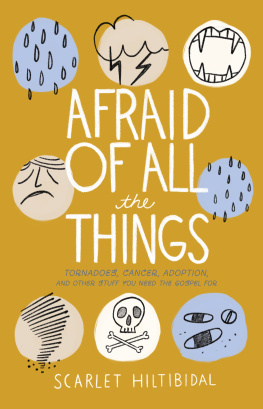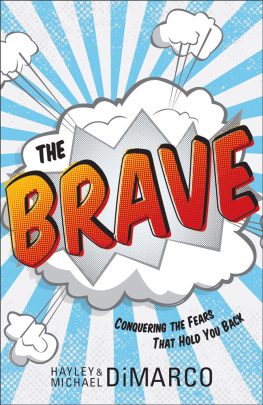Table of Contents
JEREMY P. TARCHER/PENGUIN
Published by the Penguin Group
www.penguin.com
Penguin Group (USA) Inc., 375 Hudson Street, New York, New York 10014, USA Penguin
Group (Canada), 10 Alcorn Avenue, Toronto, Ontario M4V 3B2, Canada (a division of Pearson
Penguin Canada Inc.) Penguin Books Ltd, 80 Strand, London WC2R ORL, England
Penguin Ireland, 25 St Stephens Green, Dublin 2, Ireland (a division of Penguin Books Ltd)
Penguin Group (Australia), 250 Camberwell Road, Camberwell, Victoria 3124, Australia (a division of Pearson Australia Group Pty Ltd) Penguin Books India Pvt Ltd, 11 Community Centre, Panchsheel Park, New Delhi-110 017, India Penguin Group (NZ), cnr Airborne and Rosedale Roads, Albany, Auckland 1310, New Zealand (a division of Pearson New Zealand Ltd.)
Penguin Books (South Africa) (Pty) Ltd, 24 Sturdee Avenue, Rosebank, Johannesburg 2196, South Africa
Penguin Books Ltd, Registered Offices: 80 Strand, London, WC2R ORL, England
First trade paperback edition 2005
Copyright 2004 by Lavinia Plonka
Illustrations by Ron Morecraft
All rights reserved. No part of this book may be reproduced, scanned, or distributed in any printed or electronic form without permission. Please do not participate in or encourage piracy of copyrighted materials in violation of the authors rights.
Purchase only authorized editions.
Published simultaneously in Canada
While the author has made every effort to provide accurate telephone numbers and Internet addresses at the time of publication, neither the publisher nor the author assumes any responsibility for errors, or for changes that occur after publication.
Every effort has been made to ensure that the information contained in this book is complete and accurate. However, neither the publisher nor the author is engaged in rendering professional advice or services to the individual reader. The ideas, procedures, and suggestions contained in this book are not intended as a subsitute for consulting with your physician. All matters regarding your health require medical supervision. Neither the author nor the publisher shall be liable or responsible for any loss or damage allegedly arising from any information or suggestion in this book.
Unless otherwise indicated, the names and circumstances of the people in the case studies and anecdotes have all been changed.
Most Tarcher/Penguin books are available at special quantity discounts for bulk purchase for sales promotions, premiums, fund-raising, and educational needs. Special books or book excerpts also can be created to fit specific needs. For details, write Penguin Group (USA) Inc. Special Markets, 375 Hudson Street, New York, NY 10014.
Plonka, Lavinia.
What are you afraid of?: a body/mind guide to courageous living / Lavinia Plonka. p. cm.
Includes bibliographical references and index.
eISBN : 978-1-101-16082-4
1. Feldenkrais method. 2. Fear. I. Title.
RC489.F44P.70622dc22
http://us.penguingroup.com
Acknowledgments
This book would not have happened without the inspiration of Reverend Mary Marcus, the editing of Mitch Horowitz, and the support of the women in my writers group.
To Ron
The mirror of my fondest hopes
and my deepest fears
Introduction: Me? Afraid?
The person walking toward me on a crowded Manhattan street. Making the phone call for that new business idea. Telling my mother to stop meddling in my brothers affairs. Quitting my job. Telling my husband what I need in bed. Joining the environmental group thats fighting the land developer who happens to be my wifes colleague. Going to the doctor. Deciding to change doctors. Letting my child travel alone. The person walking behind me on a deserted Manhattan street. Missing the plane. Being wrong. The list could go on for pages. We are constantly afraid.
Drive down any highway in America and sooner or later youll see it. Its a decal stuck on the back window that says NO FEAR! What does it mean, really, to be free of fear? The philosopher and spiritual teacher Krishnamurti once said that there are only two emotions: love and fear. Every other emotion grows out of this pair of basic, primal feelings. Now, of course, we all want to feel bathed in love, but it seems more often we find ourselves sitting with fears relatives: insecurity, pride, anger, territorialism, to name a few.
Of course, fear is a useful emotion. In Body and Mature Behavior, Dr. Moshe Feldenkrais, a pioneering researcher in the field of movement studies, observed that infants are practically insensitive to external stimuliexcept for the fear of falling. In the face of perceived danger, an infant contracts its muscles and holds its breath, which becomes the adult fear response. This innate protective mechanism was designed by nature to help us survive.
Its wise to feel a little apprehension while approaching a tiger, or driving a hairpin turn along the Amalfi coast. It sharpens the mechanisms response time, enhances alertness, speeds escape if necessary. But somewhere in mans development, fear has turned into a constant companion.
Life has never been more secure, really, for many people in the world. Our power over nature has never been greater, in every wayand yet weve never been so uneasy. The Bushmen in the Kalahariwho had none of the things we have, where life was the ancient life of the hunter, unpredictable and dangerousfelt more secure than we feel in the midst of our plenty, alone at night in our beds.
SIR LAURENS VAN DER POST
It Really Is Chemical
When fear grips you, the brain fires neurotransmitters that shoot adrenaline and other chemicals through your entire body. We all know the physical sensationsweaty palms, changed breathing pattern, increased heart ratealso known as the fight-or-flight response. These sensations signal the system to run for cover, to protect itself. The digestive process shuts down; blood runs to the legs. All of these reactions put stress on the entire organism. Over a lifetime, they can affect health, self-esteem, and, eventually, well-being. Carolyn Myss wrote in Anatomy of the Spirit, As our lives unfold, our biological health becomes a living, breathing biographical statement that conveys our strengths, weaknesses, hopes and fears. In other words, your biography is your biology.
The fight-or-flight signal is firing constantlyfrom the moment you merge onto the highway at 65 mph into rush hour traffic while trying to negotiate your grande latte, to the sound of your bosss footsteps coming toward your cubicle, to the phone ringing twenty minutes after you expected your daughter home. The level of anxiety in our culture has sent our nervous systems into a tailspin, leaving many professionals feeling that pharmaceuticals are the only solution, flooding the market with antianxiety drugs that are supposed to make our lives normal. According to a report by the University of Ottawa, 87 million people worldwide suffer from anxiety disorders. The report also stated that sales of antianxiety drugs in 1999 totaled $2 billion, with projected sales of $3 billion for 2009.
In working with hundreds of people through the years, I have seen that behind much disease, pain, and psychological paralysis, the culprit is fear. Often the fear is something residual from childhood that has become frozen in a postureperhaps hunched shoulders, or a constant deer in the headlights expression. Something as simple as fear of falling can become such a phobia that a person is literally immobilized in certain situations. And its just one letter to change fear of

